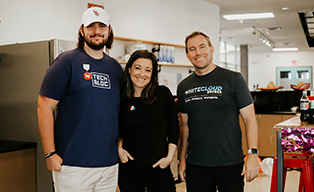The rise of business accelerators has been meteoric over the past decade, with many notable startups crediting their rapid growth to these programs. While accelerators offer many benefits to early-stage companies—such as mentorship, funding, and networking opportunities—one question often emerges: How do business accelerators make money? Understanding the business model of accelerators is essential not only for those managing these programs but also for entrepreneurs considering whether to apply. Here’s a look at some typical revenue streams for business accelerators.
Equity Stake
The most prominent way business accelerators make money is by taking an equity stake in the startups they invest in. This typically ranges between 5-10% and is in exchange for seed funding, office space, and other resources. The idea is to add significant value to these early-stage companies, enabling them to secure further funding rounds or even exit via an acquisition or IPO. When such liquidity events occur, the accelerator cashes in its equity shares for a potentially hefty return on investment.
Sponsorships and Partnerships
Many accelerators partner with corporations, venture capital firms, and even governmental organizations to fund their operations. These sponsors gain access to innovative startups and may even have the first right to invest in them while the accelerator receives financial backing to run its program. Some partnerships may also come in kind, offering free or discounted services that the accelerator can then provide to its startups.
Government Grants and Public Funding
Some accelerators benefit from government grants aimed at fostering innovation and entrepreneurship. These funds help sustain accelerator programs and are generally non-dilutive, meaning the government does not take an equity stake in the startups or the accelerator itself. This type of funding is common in regions looking to stimulate economic growth and job creation.
Paid Programs and Services
Accelerators offer auxiliary services for a fee, extending their revenue streams beyond equity stakes and sponsorships. These services might include workshops, training programs, or consultation services accessible to startups not currently enrolled in the accelerator. By positioning themselves as thought leaders in the entrepreneurial ecosystem, accelerators can attract paying clients who wish to leverage their expertise.
Demo Day Revenue
Demo Day is a significant event where startups in the accelerator program pitch to a room full of investors. While the primary aim is to secure funding for the participating startups, some accelerators monetize this event by charging admission fees, especially to larger venture capital firms and angel investors who are keen to discover the next big thing.
Alumni Donations
Though less common, some accelerators receive financial contributions from successful alumni who wish to give back to the program that helped them get started. These funds are often used to support the next batch of startups, and in return, the alumni may receive recognition or additional perks like advisory board seats.
Conclusion
The business model of an accelerator is multifaceted, involving a blend of equity investments, sponsorships, public funding, and auxiliary services. Understanding these revenue streams can offer startups a clearer view of what accelerators look for in their applicants and how these organizations sustain themselves. It can also shed light on the implicit and explicit benefits of participating in an accelerator program, making it easier for entrepreneurs to assess whether it fits their business.
Now that you know more about business accelerator programs, you’re one step closer to deciding if this path is right for your business. Geekdom’s pre-accelerator program is another excellent way to prepare for applying to accelerators. Geekdom is more than a co-working space; we have the tools to get your startup on the right track, including mentorship, networking opportunities, incubation, and more.



